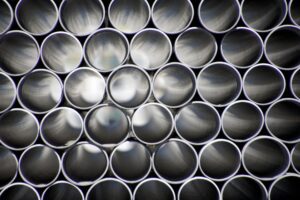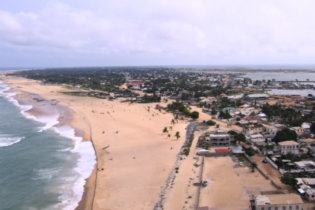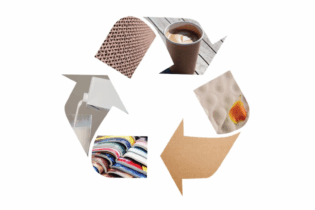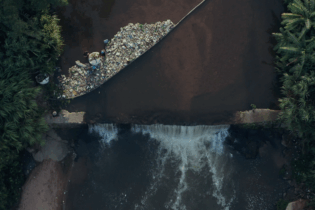South Africa continues to record a gradual increase in the annual recycling of PVC products. Despite the challenges posed by the Covid-19 pandemic on the industry, the recycling rate of vinyl products increased by 9.5 % in 2020.
The following year (2021), 22 242 tons of PVC were recycled: 14 201 tons of flexible PVC and 8 041 tons of rigid PVC. This is a 3.8 % increase, while the virgin market for PVC decreased by 4.6 % in the same period. The Southern African Vinyls Association (SAVA) – the voluntary association representing the local vinyls industry, says this achievement is a significant contribution to the country’s efforts to promote sustainable waste management practices and the circular economy. According to the data released by Plastics SA, the total domestic demand for PVC is approximately 141,800 tonnes, of which roughly 76,000 tonnes goes into the manufacturing of rigids (compounds, dry blends, etc.) and 65,800 tonnes used for flexibles. Of this amount, only 12,600 tonnes (or 9 %) of the locally consumed PVC goes into packaging such as bottles, thermoformed punnets, blister packs, clingfilm and other flexible packaging. “As only 9 % of the domestic virgin PVC market is for packaging (rigid and flexible), the input tonnages are minute and does not justify specialized collection and recycling initiatives. However, looking at the retail shelves, many imported products come in PVC packaging, ranging from linen, bedding and textile products, clothing and hardware accessories like nuts and bolts, paint brushes and hand tools. Packaging formats commonly seen include films, blister packaging, die-cut display boxes, pouches and bags, often unprinted and in perfect recyclable condition. With sufficient emphasis on identifying PVC products and creating awareness, sufficient volumes are potentially available for dedicated wash plants for contaminated post-consumer PVC packaging. All of these considerations form part of our EPR Plan,” says Monique Holtzhausen, CEO of SAVA. SAVA is registered with the Department of Forestry, Fisheries and the Environment (DFFE) as a Producer Responsibility Organisation (PRO) with the registration number 19/7/5/P/PRO/20220811/034.All income generated from the vinyl packaging producers is ring-fenced in the SAVA budget and used specifically to increase the collection and recycling of post-consumer PVC packaging, support recyclers, encourage job creation and support the growth of the PVC packaging industries in South Africa.
Although PVC is a small-volume polymer packaging material, Monique stresses that it has specific and necessary application values. Moreover, vinyl products are in high demand by the almost fifty PVC recyclers that operate throughout South Africa and work in close partnership with SAVA. “The shortage of virgin material that we experienced over the past two years significantly contributed to the increased demand for recycled PVC. The combined output recycling rate for PVC was 12.1 %. If only PVC packaging is considered, an output recycling rate of 6.2 % was achieved, post-industrial packaging only,” Monique reports, adding that recycled PVC helps to reduce the amount of energy and raw materials needed to produce new products. Therefore, the recycling of PVC products is an essential aspect of sustainable waste management practices. Innovation in PVC Conference “SAVA is fortunate to represent South Africa on the global stage as a member of the Global Vinyls Council. Here we are able to work closely with other vinyl associations from around the world, share learnings and collaborate on issues that we are all facing, such as legislation which might impact on our industry, developing strategies for collection and recycling or developing innovative new applications. As an extension of this, we are excited to announce that we will be hosting our first “Innovation in PVC” conference on 30 August 2023 at Sasol Place, its beautiful head office in Sandton. The conference aims to encourage new and innovative solutions for dealing with post-consumer PVC packaging and to encourage raw material suppliers and manufacturers of PVC products to come and introduce their new applications or products to the rest of the industry,” Monique reports. “We are proud of the progress made in the recycling of PVC products in South Africa. The increase in annual recycling figures is a testament to the hard work and dedication of all stakeholders involved in promoting sustainable waste management practices in the country. We remain committed to our goal of achieving a circular economy for PVC products in South Africa and look forward to further progress in this area,” she concludes.






